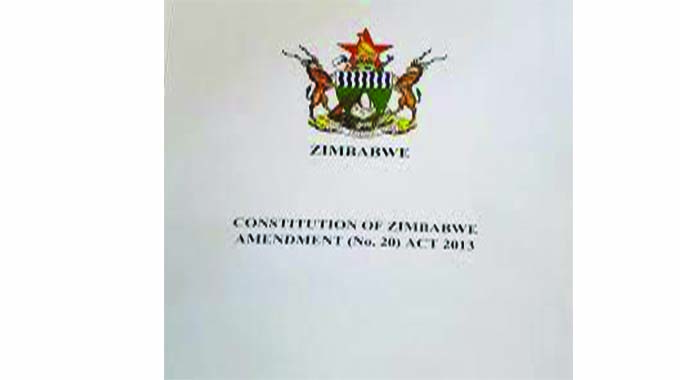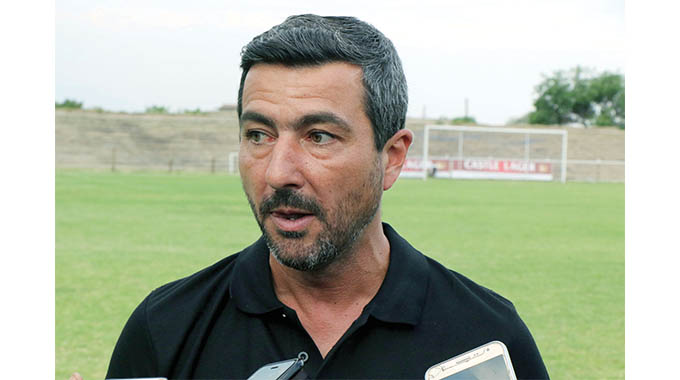Unmasking the hypocrisy behind the politics of shutdowns

Wallace Musakanyi, Correspondent
CIVIL liberties are invaluable components of every political establishment and dispensation.
Besides that, they add life to constitutional democracy which enables human rights to be realised in light of their universality as well as good governance practices to take shape.
The politics of shutdowns is premised on civil disobedience practices amongst them non-violent protests, staged sit-ins, marches, stay-aways, blockades as well as hunger strikes, among other acts.
In essence, these acts, if conducted for a genuine concern, can be a panacea to addressing some of the socio-economic as well as political ills that might be part and parcel of a certain jurisdiction.
The Constitution of Zimbabwe which is a product of constitutional democracy guarantees the right to demonstrate and to petition, which gives impetus to these shutdowns and other civil disobedience acts.

Specifically, Section 59 of the Constitution postulates that every person has the right to demonstrate and to present petitions, but these rights must be exercised peacefully.
Against this background, there has been calls for protests and shutdowns in Zimbabwe by various individuals and organisations, this has mainly been as a result of the tolerant, democratic and enabling environment that was created by the Second Republic.
Of late, there was a planned total shutdown in Zimbabwe which trended for the past weeks under the hashtag #ShutdownZimbabwe which was scheduled to take place on Monday, the 9th of May.
In as much as the general populace did not give heed to this misinformed and anti-developmental initiative, the shutdown had the blessings of Western funded NGOs, amongst them Team Pachedu, Crisis Coalition in Zimbabwe, pseudo political activists cum cashivists as well as members from the opposition who used the microblogging site Twitter to market and endorse the initiative.
Some of the demands that formed the basis of this failed shutdown included an end to the transport challenges, reducing the cost of living and an end to currency challenges among other concerns.
Nevertheless, there are multiple channels through which citizens can contribute towards the betterment of these aforementioned concerns which were created by the Government, chief amongst them fostering strategic public and private partnerships.
Citizens can also utilise a wide array of platforms that has been put in place under the ease of doing business framework, desisting from currency manipulation and sabotage as well as shunning black market activities, among others.
Basically, the politics of shutdowns is part of a strategy that seeks to impose maximum pressure, which is eventually premised on suffocating the Second Republic.
Living in an era where a minute lost is never recovered and in a world, where time is equated to money, it’s depressing to hear calls to shutdown Zimbabwe specifically by people who are feeding on Western donor funds, some of them who do not even reside in Zimbabwe.
The same organisations who called for the shutdown, specifically Team Pachedu, did not honour their pledge, on the 9th of May instead of shutting down their operations, they spent the whole day doing their digital activism work via Twitter endorsing a failed shutdown.
On a good note, the masses blue ticked and ignored calls for a nationwide shutdown as they continued business as usual.
This was a clear message that the citizens sent to the international community that the masses are pro-development and are not ready to take unpatriotic and rebellious orders from the imperial agents and their loyal puppets.
This is mainly because one of the main supporters of this flopped shutdown was a South African failed politician Mmusi Maimane, a political stooge of the Western based organisation National Democratic Institute.

Mmusi Maimane
This denotes to the inefficacy and impracticality of these political witch-hunt tactics in a country with a spirited work ethic, dedicated citizens and peace-loving individuals like Zimbabwe.
It must be noted that miracles have no place in the developmental trajectory of Zimbabwe, hence citizens must be asking themselves a simple question, that is: “Shut-down then what?”
As long as the citizens will have to continue from where they left in the aftermath of the shutdown, what then is the purpose of conducting it in the first place?
Shutdowns are never a solution to the temporary problems that the republic is facing, in fact they drag development and pile miseries to the ordinary citizens.
In the same context, citizens must be fully aware of the fact that the erstwhile imperialists and their black skinned proxies, that is civil society organisations, non-governmental organisations and the so-called human rights activists are at work, real work aimed at undermining the republic.
Part of their work in hinged on misinformation, decampaigning and vilifying the Government as much as possible and these shutdowns are some of the means that they have been resorting to in their quest to achieve their sinister and narrow political ends.
At this juncture, it is imperative for the general populace to understand the philosophical implications of the “Nyika inovakwa nevene vayo/Ilizwe lakhiwa ngabaninilo” spirited exercise, an initiative that is being pioneered by His Excellency President Mnangagwa in relation to the development path of the country.
This framework and initiative requires citizens to be the building blocks of this country; making important strides in the sectors like manufacturing, industry, commerce, mining, agriculture and ICT, to mention just a few.
As such, much emphasis must be on production, value addition and beneficiation, digitalisation as well as entrepreneurship, which require citizens to work round the clock for the betterment of the country and its inhabitants.
Acts of sabotages through externally drafted and meditated shutdowns are an assault to the economy, chokes progress and the development which is at the heart and soul of the New Dispensation.
On the contrary, the shutdowns are an anti-thesis of development, wayward as well as anti-Zimbabwean in scope and magnitude.
Apart from appeasing the neo-imperialists and their Zimbabwean-based cheerleader organisations and individuals, such initiatives will make Zimbabweans suffer even more.
It’s tantamount to the knee on neck approach that is modelled to depress the Government, assault business and manufacturing sectors.
For the record, there is nothing democratic or constitutional in these shutdowns but it’s the modus operandi of the anti-Zimbabwean NGOs, CSOs and individuals who find pleasure in the suffering of the ordinary masses and seek to profiteer and access funding by causing mayhem in the country.
They are mere political parasites who feed on demonising, attacking and discrediting the Government initiatives in the name of upholding democracy and human rights.
It is high time that the public begin to see the value of peace and order especially in the Second Republic and its implications on key activities like the Zimbabwe is Open for Business initiative.
The citizens have to bear this in mind that Zimbabwe is developed by constructive criticism, unity for a purpose, dialogue, tolerance, peace and more importantly production and the input of each and every citizen is of paramount importance in that regard.
-Wallace Musakanyi is a researcher and writer who can be contacted on [email protected]











Comments